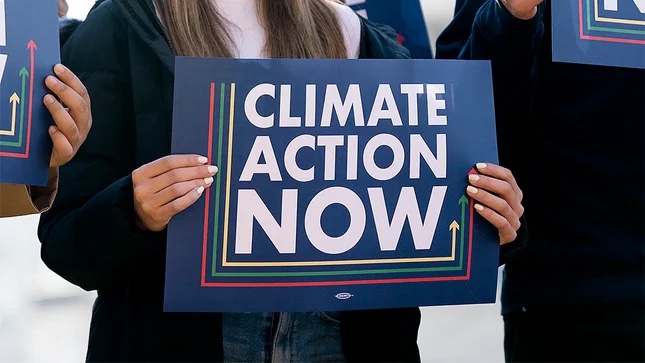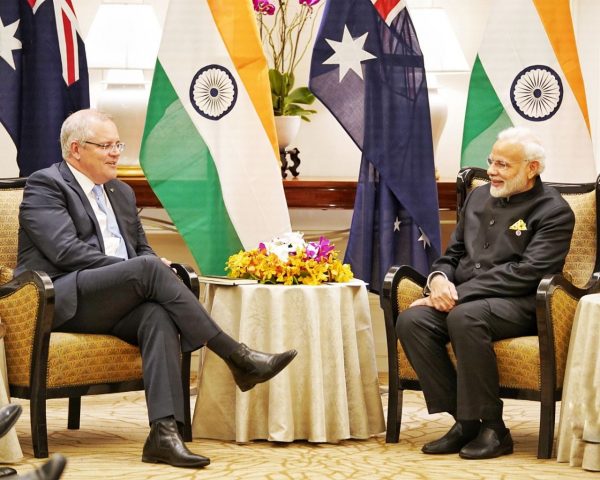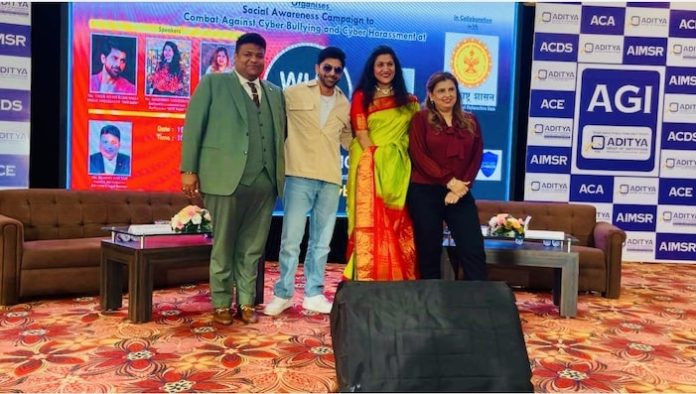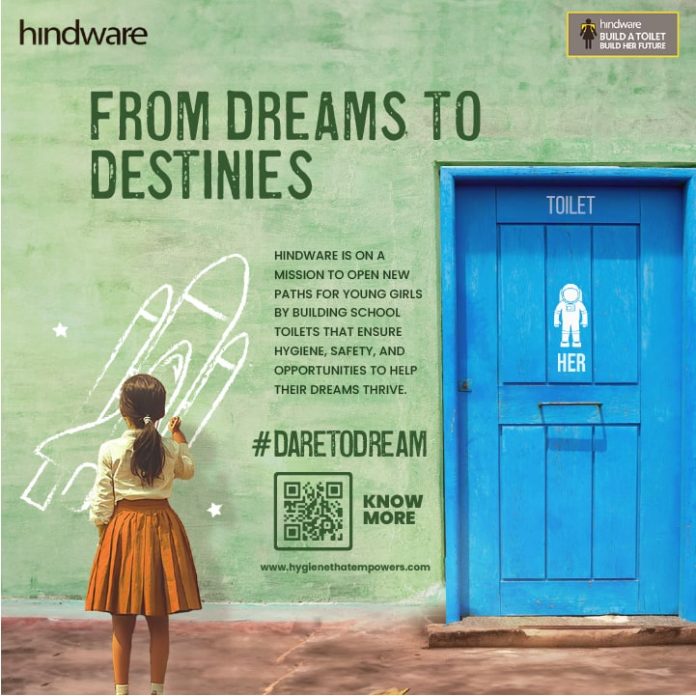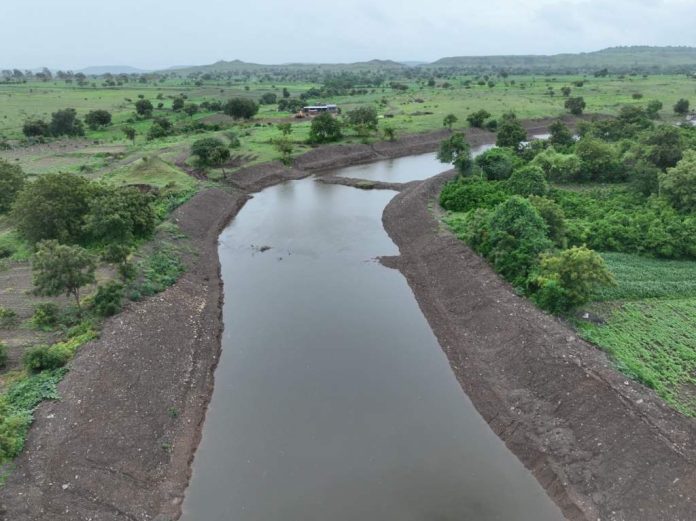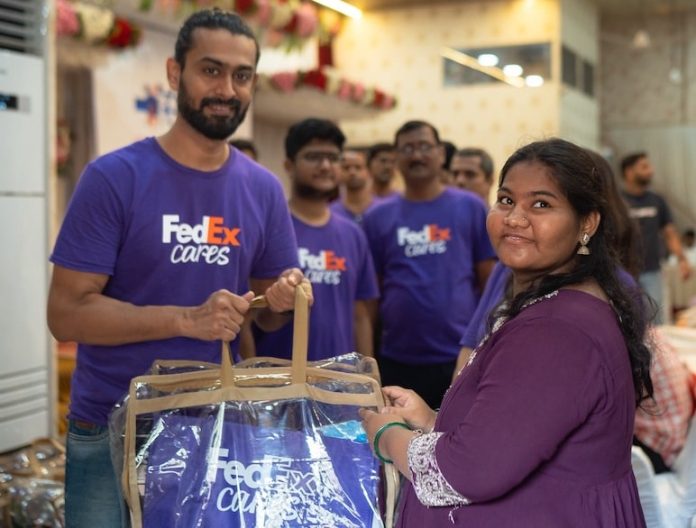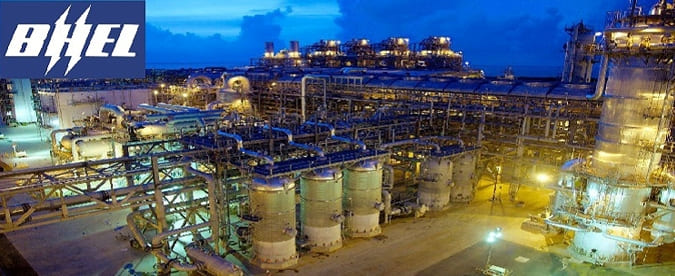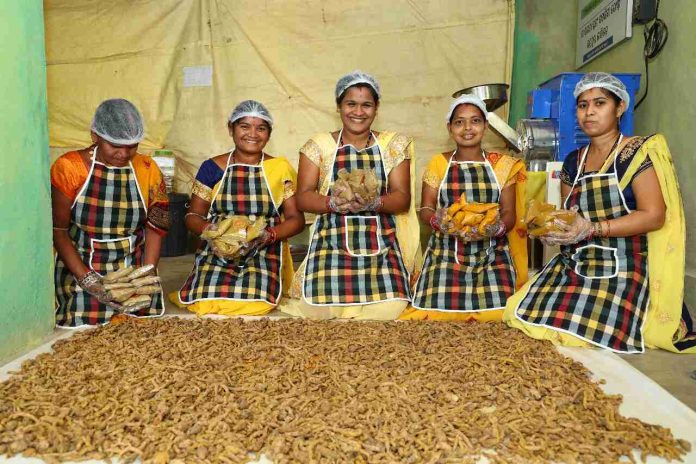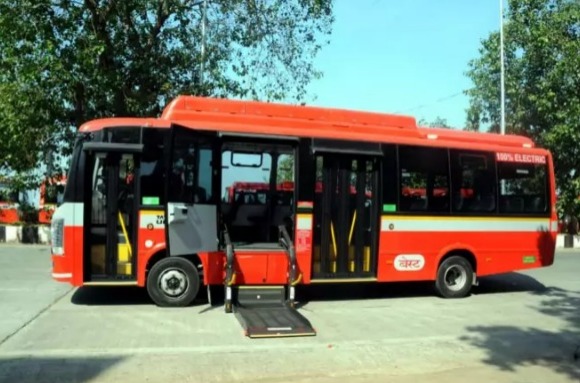CSR News: IndusInd Bank and UNICEF collaborate to strengthen Climate Risk Management and Community Resilience
Mumbai, India: IndusInd Bank and UNICEF announced a strategic partnership to support the ‘Disaster Resilient Communities and Climate Risk-Informed Efficient Administrative Systems’ as part of the Flagship CSR program of IndusInd Bank. The program aims to enhance government policies and develop climate-informed administrative systems in five select districts across India: Dharashiv (Maharashtra), Begusarai (Bihar), Virudhunagar (Tamil Nadu), Baran (Rajasthan), and Bahraich (Uttar Pradesh). This initiative is a part of the Holistic Rural Development program (Climate Action portion), a Flagship CSR Initiative of IndusInd Bank in the Aspirational Districts.
The partnership, formalized through a Statement of Intent (SOI), will focus on building disaster-resilient communities and empowering local governments to implement climate solutions. Key initiatives will include the development of real-time monitoring systems, early warning mechanisms, and advisory services to mitigate climate risks such as droughts, floods and heatwaves.
Mr. Srinivas Bonam – Head – Inclusive Banking Group, CSR & Sustainability, IndusInd Bank, said “At IndusInd Bank, our commitment remains unwavered in uplifting the economy, society, and the environment equally. We recognize that our role goes beyond traditional banking, and partnering with organizations like UNICEF is both an honour and a responsibility. Together, we aim to create solutions that benefit vulnerable communities and promote long-term development. We believe this program and collaboration would drive meaningful change and empower individuals to build a sustainable future. Our dedication to noble causes is not just a part of our mission; it is the essence of who we are and will continue to guide our efforts as we strive to make a lasting, positive impact in the world.”
Mr. Arjan de Wagt- Deputy Representative Programmes, UNICEF India said “UNICEF’s partnership with IndusInd Bank, aims to enhance climate induced disaster resilience among rural communities. By collaborating with panchayats and other stakeholders, we will together focus on building disaster-resilient communities and support local governments to implement climate solutions towards a more sustainable future for children.”
This partnership will involve various stakeholders to enhance climate resilience in IndusInd Bank Limited intervened Aspirational Districts. IndusInd Bank in partnership with UNICEF will work to promote a model of district level risk informed disaster risk reduction programming. The CSR Trust for SDGs in India (CTSI) will oversee the overall program, IIT Gandhinagar will develop a sophisticated monitoring and early warning system, the Gorakhpur Environment Action Group will focus on capacity building and training for local officials, and Mission Samriddhi will foster stakeholder engagement, integrate diverse perspectives, and promote knowledge sharing.
Disclaimer: This media release is auto-generated. The CSR Journal is not responsible for the content.
CSR News: Cement Company drives community-led plastic waste management in Vadnagar
Ambuja Cements, the cement and building material company of the diversified Adani Group, with the support of its CSR team has been a key player in promoting sustainable waste management practices at Vadnagar village, in Gir Somnath district of Gujarat.
As part of the Lighthouse Initiative, the company’s CSR team and Vadnagar Gram Panchayat have mobilised the local community to take charge of plastic waste management by forming a Self-Help Group (SHG) of waste collectors. The SHG has been integral in collecting and segregating plastic waste, which is then repurposed by Ambuja Cements as alternative fuel at its Ambujanagar plant, contributing to a cleaner and healthier environment.
The initiative has not only reduced the plastic burden on the environment but also created a source of livelihood for community members. By incentivising the collection of plastic waste, Ambuja Cements has empowered the community, ensuring that waste management remains sustainable and community owned.
This initiative demonstrates Ambuja Cements’ commitment to both environmental sustainability and social welfare, positioning the company as a leader in community-driven waste management solutions.
Ambuja Cements continues to expand this initiative across Gujarat, ensuring that rural waste management remains a cornerstone of the company’s broader mission for environmental excellence and community empowerment.
Disclaimer: This media release is auto-generated. The CSR Journal is not responsible for the content.
CSR News: ‘Build a Toilet, Build Her Future’ Initiative Transforming Lives, One Toilet at a Time
Hindware Limited, India’s leading bathware brand, continues its mission to empower young girls and uplift communities through its “Build a Toilet, Build Her Future” program. Launched in 2020 under the aegis, #HygieneThatEmpowers CSR initiative, the program takes on a new dimension with the ‘Dare to Dream’ theme this year, leveraging the power of safe and accessible sanitation to empower girls to stay in school, pursue their dreams, and build a brighter future.
Inadequate sanitation facilities remain a critical issue in rural areas, significantly affecting girls’ education, contributing to the dropout of 23% of girls from school upon reaching puberty. Another survey from Sulabh International highlights that the girls in rural areas avoid school toilets during menstruation due to poor sanitation, leading to up to 60 days of absenteeism annually. To address this challenge, Hindware is committed to providing access to clean and hygienic sanitation facilities. As part of the ‘Build a Toilet, Build Her Future’ program, the company has collaborated with the Pune-based NGO Manas Foundation and local communities and so far has successfully constructed 400+ toilets across 120+ schools in Delhi, Haryana, Roorkee, and Telangana. By end of FY25, the company will add another 100+ toilets, empowering thousands of girls to ensure that they have the opportunity to pursue their education uninterrupted.
Hindware is further leveraging social media to spread awareness about this noble cause and featuring stories of young girls whose lives have been transformed by the ‘Build a Toilet, Build Her Future’ program. By sharing these stories, Hindware aims to raise awareness, inspire action, and encourage greater support for initiatives that empower girls.
Mr. Sudhanshu Pokhriyal, CEO, Bath and Tiles Business at Hindware Limited, emphasised the impact of this initiative, saying, “This year’s ‘Dare to Dream’ theme embodies the essence of our ‘Build a Toilet, Build Her Future’ program by encouraging girls to envision and pursue a brighter future. Each toilet built and each school reached is a step closer to a nation where girls can focus on their education and realise their dreams. As, we continue to expand this initiative, we are committed to empowering more girls, breaking down barriers, and building a stronger, more equitable India.”
Mr. Shashvat Somany, Head of Strategy, Somany Impresa Group and Independent Director, Hindware Limited, added, “As we enter the fifth year of the ‘Build a Toilet, Build Her Future’ campaign, our commitment to empowering young girls through access to adequate sanitation remains steadfast. By ensuring girls can attend school uninterrupted, we are investing in India’s future. We are grateful for the continued support of our partners and communities in making this a reality.”
Disclaimer: This media release is auto-generated. The CSR Journal is not responsible for the content.
CSR News: Empowering Women and LGBTQIA+ Small Business Owners in India through CSR
Federal Express Corporation, the world’s largest express transportation companies, is strengthening its role as a corporate citizen by supporting inclusive entrepreneurship through the United Way Mumbai Saksham initiative. In collaboration with the local humanitarian partner, FedEx is providing minority entrepreneurs with resources, training, and mentorship to foster economic independence in India’s diverse and dynamic economy.
Since 2021, the Saksham initiative has been providing carefully curated business kits to small business owners across various sectors, including tailoring, food services, and beauty services, designed to meet local market demands. These kits enable beneficiaries to build sustainable businesses, and the May 2024 distribution alone produced impressive results as per UWM post-distribution assessment.
– 38%—who previously had no source of income—now earn an average annual income of ₹61,176.
– 19% of those who earned under ₹15,000 annually have seen their earnings rise to an average of ₹66,782.
This initiative has also driven transformative outcomes as per the NGOs post distribution assessment for the LGBTQIA+ community.
– Initially, 45% of LGBTQIA+ participants were unemployed. After enrolling in Saksham, 90% of them have secured employment or become self-employed.
– 68% are now employed in private sector roles, earning between ₹14,000-₹15,000 monthly, while 23% have established successful self-employment ventures in cultural performances, beauty services, and tailoring.
“Small and medium enterprises (SMEs) are a driving force for economic growth, yet many entrepreneurs lack the resources to succeed,” commented Suvendu Choudhury, Vice President, India Operations, FedEx. “The Saksham initiative helps bridge that gap for women and LGBTQI+ entrepreneurs, providing them with essential resources and clear pathways to self-sufficiency. We’re committed to helping them thrive within India’s SME ecosystem and to support India’s goals for inclusive, long-term economic development.”
Since its launch in 2021, the Saksham initiative has been a cornerstone of the FedEx Global Entrepreneurship CSR pillar in India, empowering underserved groups with the tools to build sustainable livelihoods. Through Saksham, FedEx plays a crucial role in promoting economic self-reliance, aligning with the government’s efforts to support small businesses.
Disclaimer: This media release is auto-generated. The CSR Journal is not responsible for the content.
Sustainability and CSR Report of Bharat Heavy Electricals Limited (BHEL) for FY 2024
Bharat Heavy Electricals Limited (BHEL) is one of the country’s top Maharatna CPSE entities and one of India’s leading engineering and manufacturing giants established in 1964. BHEL has been ‘Making in India’ as a leading Capital Goods sector company.
The company’s businesses are in the area of power and industry, offering comprehensive solutions, including products, systems and services to power generation (thermal, hydro, gas, nuclear and solar PV), transmission, transportation, defence, aerospace, oil & gas and other core sectors of the country, and also abroad.
BHEL incorporated as Public Sector Undertaking of Government of India, with a shareholding of 63.17%, has established 16 manufacturing plants spread across India, producing capital goods for the customers in domestic as well as international market.
The Company has been supporting communities through programs like skill development; promoting health, hygiene & education; and running several programs on environmental protection & improvement.
CSR spent
BHEL’s total amount of CSR expenditure for the Financial Year 2023-24 is Rs 401.36 Lakh.
CSR activities of BHEL
BHEL has seven focus areas for carrying out its CSR initiatives, which are in line with activities and areas mentioned in Schedule VII of the Companies Act, 2013. These include:
CSR for Clean India (Swachh Bharat)
Under this, BHEL has provided CSR funds for the construction of 23 clusters of Biodigester toilets in Haridwar & Rishikesh in Uttarakhand.
As part of the Swachhata Pakhwada, a two-week initiative from August 16 to August 31, 2024, BHEL took part in enhancing cleanliness in both urban and rural areas. Teaming up with Bhumi, a leading volunteering organization, BHEL spearheaded a vibrant lake cleanup drive at Pallavaram Lake, also known as Periya Lake, in a dynamic effort to promote environmental sustainability.
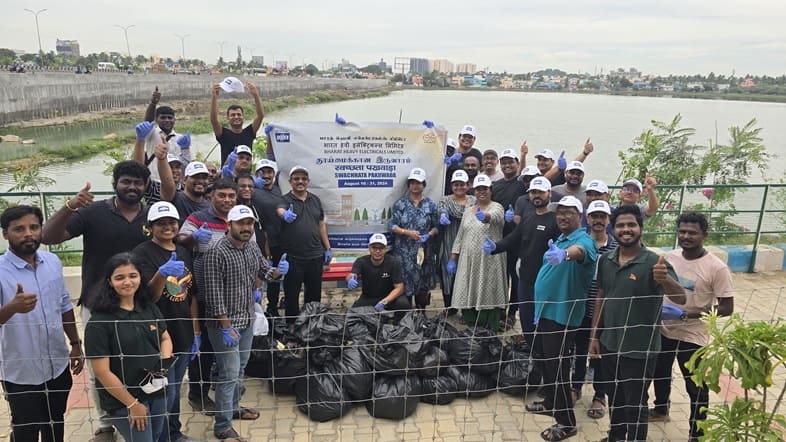
CSR for Educated India (Shikshit Bharat)
BHEL has provided financial support for the distribution of “You can be Happy” series books, followed by health & career counselling for KVS students in Delhi NCR through ISKCON.
CSR for Healthy India (Swasth Bharat)
BHEL has provided financial support for “Heal-A-Soul IV”- Providing Anti Haemophilic Factors (AHF) to Persons & Children with Haemophilia (P&Cwh) in various Aspirational Districts across India under its CSR initiative.
CSR to make India inclusive (Samaveshi Bharat)
BHEL has provided financial support to the Municipal Commissioner of Varanasi for installation of 100 numbers Heritage Street Lighting System at Varanasi.
The company provided financial support to the “Professional Assistance for Development Action” for the project: Motivating Agrarian communities of Kandhamal (Odisha) for their Economic Transformation.
Financial support has been given to Sulabh International Social Service Organisation for Construction, Operation and Maintenance of Sulabh Toilet Complexes at 11 identified Places in Varanasi and Chandauli, Uttar Pradesh.
Financial support has been given for the construction of Sarai building for approx. 100 People at Dr. Rajendra Prasad Government Medical College, Tanda, in Kangra District, Himachal Pradesh.
BHEL has also provided financial support to District Collector, Suryapet, Telangana for setting up 36 Gyms.
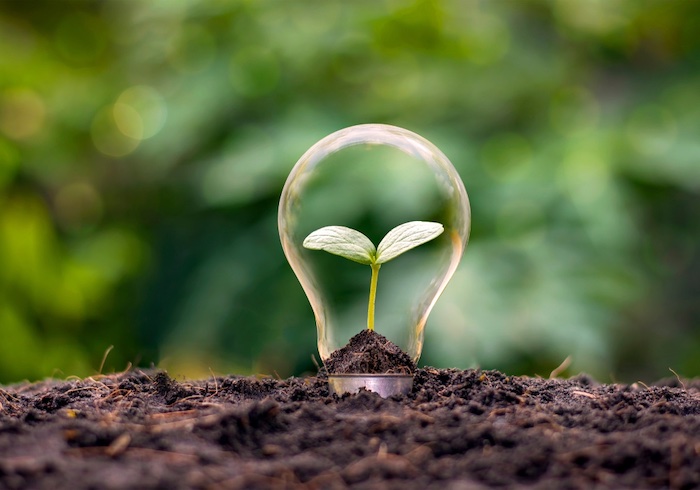
Sustainability at BHEL
Not only Corporate Social Responsibility (CSR), BHEL also takes efforts towards making the planet greener. Following are the sustainability measures taken by BHEL.
Responsible Material & Natural Resource Consumption
Sustainable material consumption through optimization, waste minimization in manufacturing processes, nesting plans for cutting metal sheets and sections to reduce wastage, recycling/utilisation of cut bits or offcuts generated are some of the measures taken for promoting resource efficiency.
Energy Management
BHEL has been providing its customers with more energy efficient equipment and power plants with cleaner technologies and contributing towards energy efficiency and carbon emission reduction in consistency with UN Sustainable Development Goal 7 (SDG 7) – Affordable & Clean Energy.
Water & Biodiversity Management
BHEL has established more than 140 Rainwater Harvesting Systems of different sizes and capacities across its campuses for recharging ground water table. Nine new water harvesting structures have been added this year. To recharge ground water table, 8 new water bodies were also created during the year. For prevention of water pollution and sustainable management of wastewater, the company has established 20 Effluent Treatment Plants (ETPs) and 19 Sewage Treatment Plants (STPs). New STPs at SBD Bengaluru and HPVP Vizag units were commissioned during FY 2023-24. Notably, 11 manufacturing units are not letting out any effluent outside their premises.
Green Cover
The premises of all BHEL units are covered with trees, shrubs and water bodies extending to about 40% of total land area in BHEL premises. As per the company’s internal estimation, the total number of shrubs and trees in its premises is about 30 lakhs. Three BHEL units namely; Jhansi, Hyderabad and Trichy unit have developed Miyawaki forests with cumulative coverage in excess of 15,000 square meters.
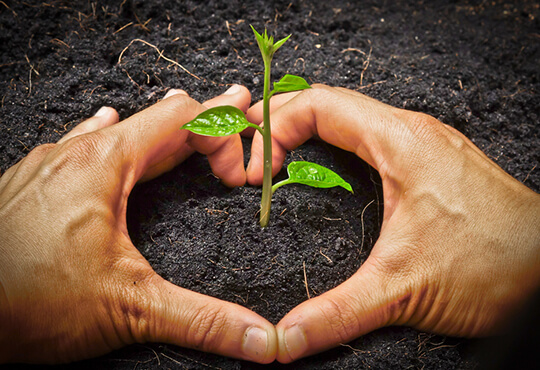
During last 5 years, more than 3.10 lakh saplings were planted in different BHEL units. Out of these, 81,608 saplings were planted during the year 2023-24. In addition to green cover, larger manufacturing units have water bodies too inside their campuses. With an objective to promote biodiversity, eight new water bodies were created in different BHEL units during the year.
In FY 2023-24, BHEL became part of World Economic Forum’s (WEF’s) one trillion trees initiative by taking a pledge on ‘1t.org’ aiming to empower the reforestation community and ensure the conservation and restoration of one trillion trees. BHEL has taken a pledge to conserve 3 million existing trees in its campuses, and augment the same by planting more saplings.
Carbon Management
BHEL’s carbon management strategies to achieve Net zero status by 2047 is reflection of its commitment for transitioning towards a sustainable energy mix and reducing its carbon emissions. To reduce carbon emission as well as air pollution, most of its Manufacturing Units have switched to greener fuels such as LPG/ CNG/ RLNG in place of coal/ FO/ HSD/ LDO for heating purposes.
BHEL’s manufacturing units have onsite captive solar PV systems in excess of 35 MWp, resulting in 8% increase in avoidance of carbon footprints in FY 2023-24 over previous year.
The company’s green cover also acts as a natural carbon sink, complementing carbon reduction efforts. Ongoing Energy Conservation (EnCon) and Energy Efficiency (EE) projects contribute to Scope-1 and Scope-2 emission reductions on a continual basis, reinforcing BHEL’s commitment to carbon management and sustainability.
Waste Management
The Company has well laid out systems for management of different types of wastes based on the principles of 3R (Reduce, Recycle, Reuse) following below mentioned measures.
All metallic wastes are segregated at source for re-use to maximum extent before selling to authorised agencies as scrap.
Hazardous waste, e-waste and battery waste are safely stored and disposed-off to the authorised agencies and prescribed returns are submitted to the concerned regulatory agencies. The biodegradable wastes are used for composting to the extent possible. In HEP, Bhopal the canteen waste is used in bio digester for generation of bio-gas.
The inert (non-hazardous) wastes having no resale value, are used in construction for back filling or used for filling low lying areas within our premises. A Special Campaign 3.0 on Swachhata was initiated across BHEL during October 2023 focusing on collection and disposal of scrap. All fifteen BHEL townships have been certified as “Single Use Plastic Free” township.



